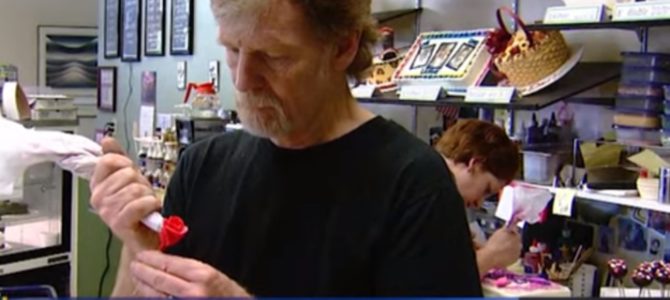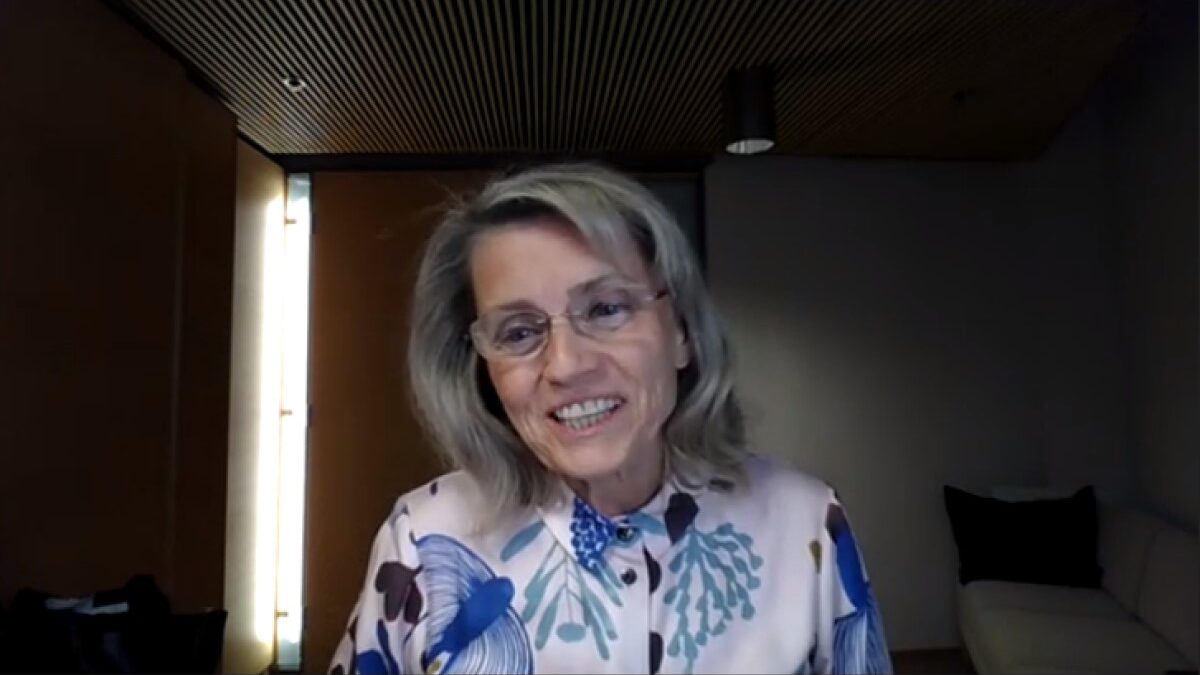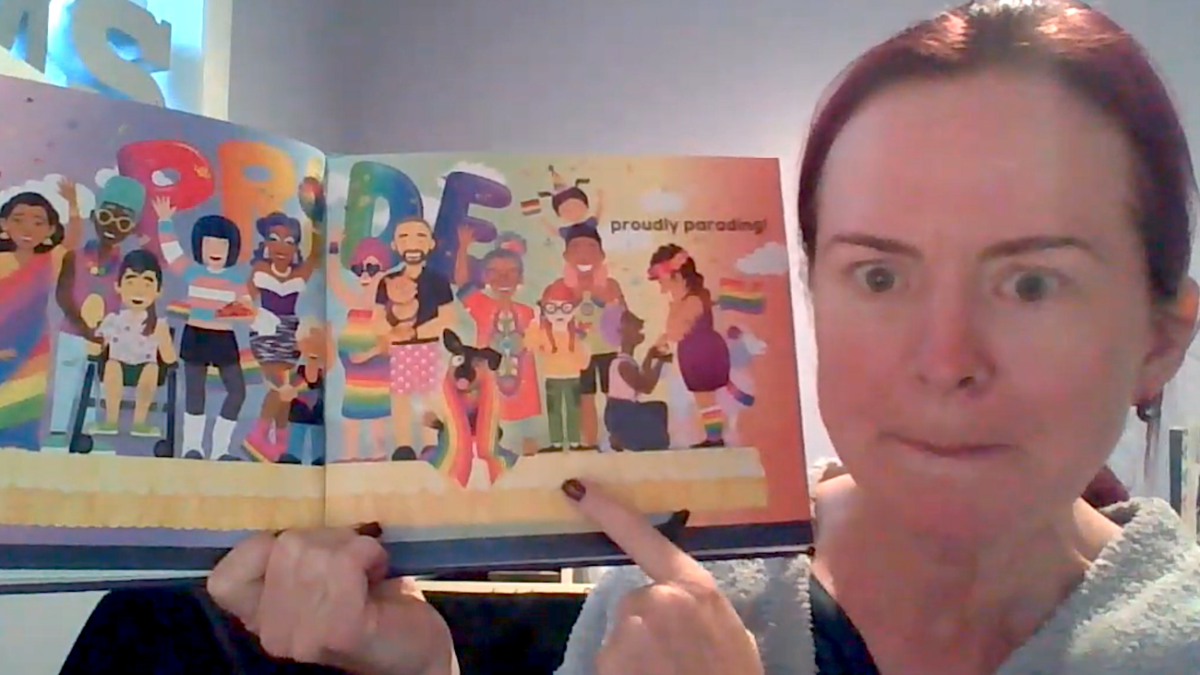
Last week, Denver District Judge A. Bruce Jones fined Jack Phillips, the owner of Masterpiece Bakery, for refusing to bake a cake that was blue on the outside and pink on the inside to celebrate the gender transition of Autumn Scardina. The court ruled that Phillips’s refusal to make the cake due to Scardina’s transgender status violated the Colorado Anti-Discrimination Act.
Phillips argued he could not make the cake because the message it conveyed conflicts with his religious beliefs. The court countered that the case was about the refusal to sell a product, not compelled speech.
Phillips famously found himself in the government’s crosshairs for the first time years ago. In the Masterpiece Cakeshop case, the Supreme Court ruled narrowly in favor of Phillips, finding that the Colorado Civil Rights Commission displayed “a clear and impermissible hostility toward the sincere religious beliefs motivating his objection.” The Supreme Court left undecided whether a business owner’s rights to freedom of religion and speech can justify his refusal to engage in commerce with homosexuals.
In similar cases involving Oregon baker Sweet Cakes by Melissa and Washington state florist Arlene’s Flowers and Gifts, the high court remanded the cases back to the state courts for further adjudication. In the Oregon case, the state argued that “baking is conduct, not speech” in contending that “a bakery open to the public has no right to discriminate against customers on the basis of their sexual orientation.”
Discrimination entails treating an individual differently based on some characteristic, such as race, sex, or sexual orientation. But did Phillips actually engage in discrimination? His refusal to sell one of his cakes was based on the particular message conveyed by the design or inscription on the cake, not on whether the would-be customer was gay or transgender.
There is no indication that Phillips refused to sell any product to an LGBT person that he was willing to sell to a straight person. This is not discrimination; this is the right of a business owner to decide on both the products that he sells and those he does not.
Why Must Phillips Bake the Cake and No One Else?
Phillips is no ordinary baker; his talents are legendary and his cakes are recognized as genuine works of art. A Phillips cake has a unique signature precisely because he is the artist who created it. He simply does not wish his artistry to be used to advocate for lifestyles that he perceives violate his religious convictions.
The claim that no other bakery could produce a cake celebrating certain lifestyles only reinforces the argument that it is not possible to separate the cake from the artist who created it. If a cake is merely a cake, then those practicing LGBT lifestyles can easily secure one elsewhere. But they don’t want just a cake, they want a Phillips cake, either because those cakes are truly unique or because they want to compel certain speech from someone whose views they consider wrong-headed and in need of correction.
Courts should not be in the re-education business. They should protect our freedoms and constitutional protections as those were originally drafted regardless of whether they are considered politically acceptable by the standards and mores of the modern day.
The founders did not intend for the courts to determine what constitutes a legitimate religious belief or practice. In “Memorial and Remonstrance against Religious Assessments,” James Madison observed: “The Religion then of every man must be left to the conviction and conscience of every man; and it is the right of every man to exercise it as these may dictate. This right is in its nature an unalienable right.”
Madison further recognized in “Federalist 51” that constant vigil is required to protect against undue government encroachment.
But what is government itself but the greatest of all reflections on human nature? If men were angels, no government would be necessary. If angels were to govern men, neither external nor internal controls on government would be necessary. In framing a government which is to be administered by men over men, the great difficulty lies in this: you must first enable the government to control the governed; and in the next place oblige it to control itself.
The extant case is arguably not about discrimination, unless it is discrimination against Phillips’s religious beliefs, but about the Colorado Civil Rights Commission expressing its disapproval of his views. Phillips does not think the way the commission thinks he should. Phillips is a devout Christian, and the government should not force him to employ his skills in a manner that offends his faith.
Legal compulsion is one of the most invasive measures by which the government can regulate behavior. Its use should be measured and carefully circumscribed with due consideration given to the precedent that is being set.
This Is Up to Individual Choice, Not State Coercion
Even if the high court were to take this case and ultimately find in favor of Phillips, this does not mean that he has not paid an economic price for his views. Social media stands ready to influence the demand for the product Phillips sells and, in turn, the earnings generated by Masterpiece Bakery.
Some would-be customers will shun the bakery simply because of the owner’s views, while others will go out of their way to patronize the bakery to show support for the importance of protecting religious liberties. The net effect is uncertain.
For example, despite practices that some find objectionable, so far it appears Chick-fil-A has not been harmed in the marketplace by some of its executives’ beliefs about government licenses for gay relationships. This may indicate that the collective public sentiment is neutral to positive.
Conversely, in the case of the aforementioned Oregon bakery, the public outcry on social media, which included threats of violence, was so fervent that the bakery was forced to close its brick and mortar business and retreat exclusively to an online presence. The collective public sentiment was decidedly negative in that case. There is reason for hope for Phillips. His bakery is still standing despite being engaged in this protracted battle for nearly a decade.
Jack Phillips should not be persecuted by the government for his religious beliefs or the manner in which he practices them, nor should those engaged in alternative lifestyles be persecuted for theirs. It is ironic that a community that stresses the importance of tolerance should be so intolerant of those holding different views. Phillips is not discriminating against LGBT people; he is simply exercising his constitutional right not to be an advocate for their cause.









